 Home NEWS & MEDIA Save the Blue Sky, Recharge Mother Earth – Bud China Takes Action! Bud China joins UNEP in celebrating WED by launching renewable energy project at world-largest Budweiser brewery
Home NEWS & MEDIA Save the Blue Sky, Recharge Mother Earth – Bud China Takes Action! Bud China joins UNEP in celebrating WED by launching renewable energy project at world-largest Budweiser brewery
June 5, 2019, Foshan, China – To celebrate the 48th World Environment Day in China, leading APAC brewer Bud APAC today inaugurated its renewable energy project at Budweiser’s world-biggest brewing and bottling facility in Foshan of southern China’s Guangdong Province. More than 100 guests, including leaders from the Foshan Municipal Government, the Sanshui District Government and the Xinan Subdistrict, He Yong, Executive Vice Secretary-General & Beer Branch Secretary-General of the China Alcoholic Drinks Association, Jan Craps, CEO & President APAC of Budweiser, Jan Clysner, VP Procurement and Sustainability APAC of Budweiser, Matt Che, VP Marketing APAC of Budweiser, Y.J. Cheng, VP Supply & Logistics APAC of Budweiser, Frank Wang, VP Legal & Corporate Affairs APAC of Budweiser, Zhu Sijie, New Energy Consultant of the Rocky Mountain Institute, Yuan Min, Energy Program Researcher of the World Resources Institute, and Meng Dengke, Vice General Manager and Head of Institute Secretary of Southern Weekly, were present to witness the milestone ceremony.
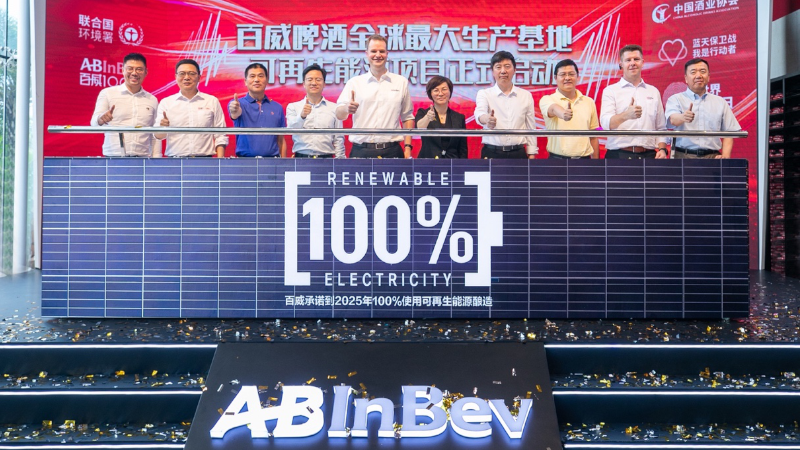
In his keynote speech, Jan Craps, CEO & President APAC of Budweiser, noted: “I feel honored that we Bud APAC are joining hands with the United Nations Environment Programme (UNEP) to celebrate World Environment Day as an official partner. In China, we’re influencing the world; and in Foshan, Bud APAC is taking action.”
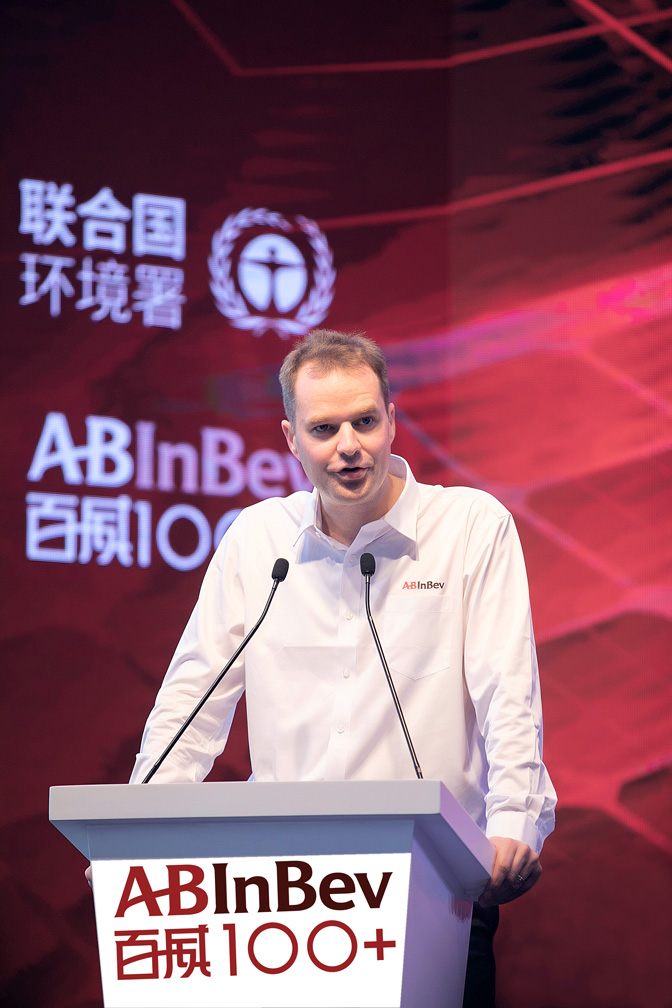
With China being the host country, the 48th World Environment Day has a Chinese slogan that chants “Take action to save the blue sky”. According to the World Health Organization, 9 out of 10 people in the world breathe air containing high levels of pollutants, and approximately 7 million people worldwide die prematurely each year from air pollution-related diseases, with about 4 million of these deaths occurring in Asia-Pacific – all these chilling facts make air pollution a major challenge that deserves immediate attention.
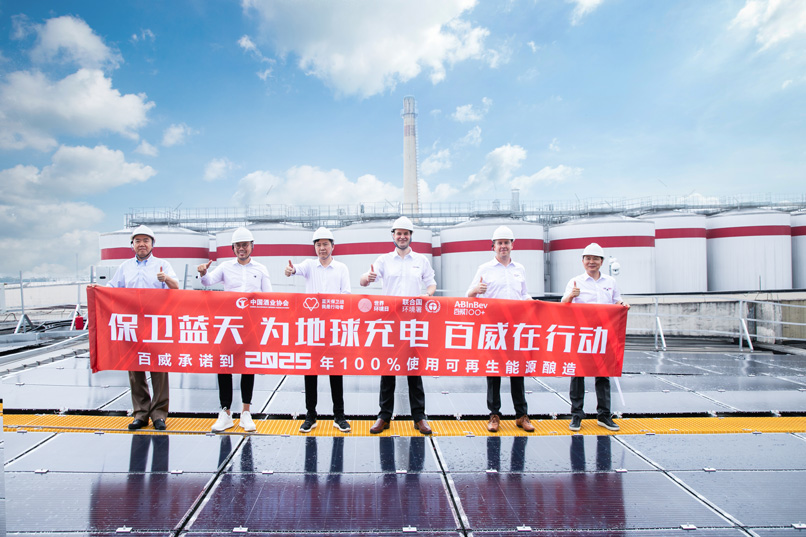
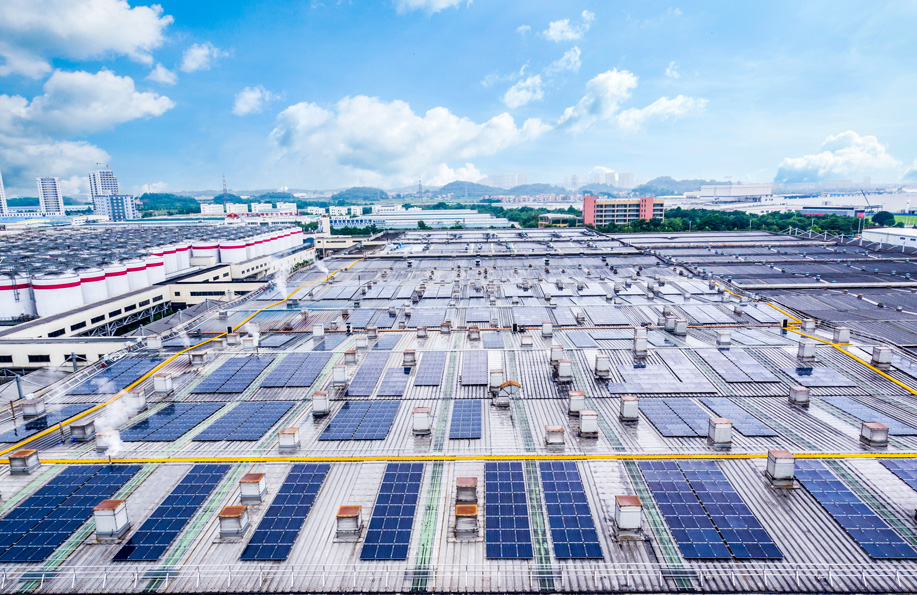
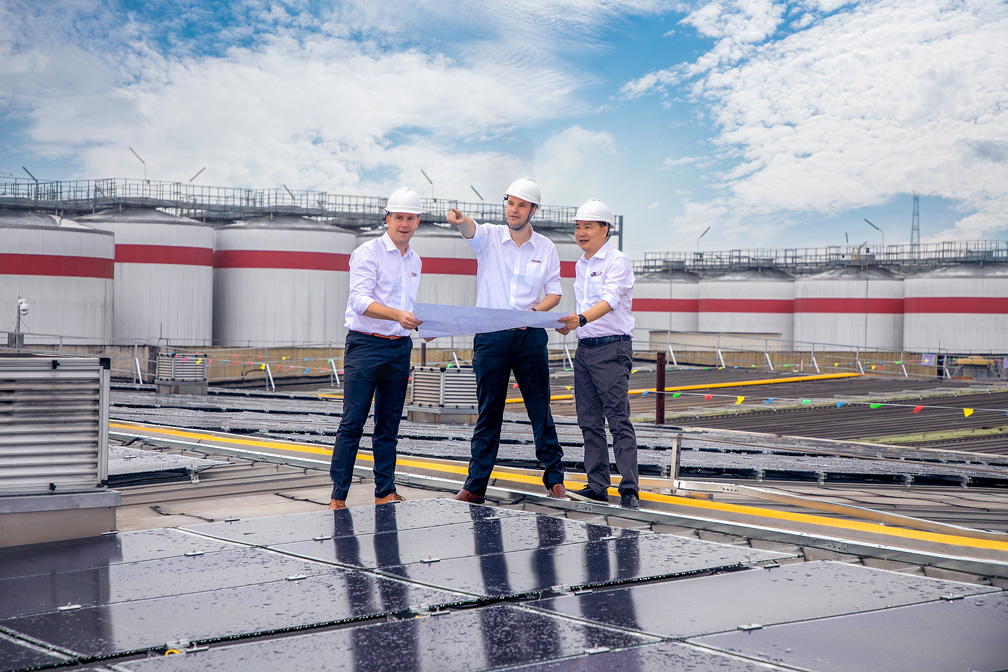
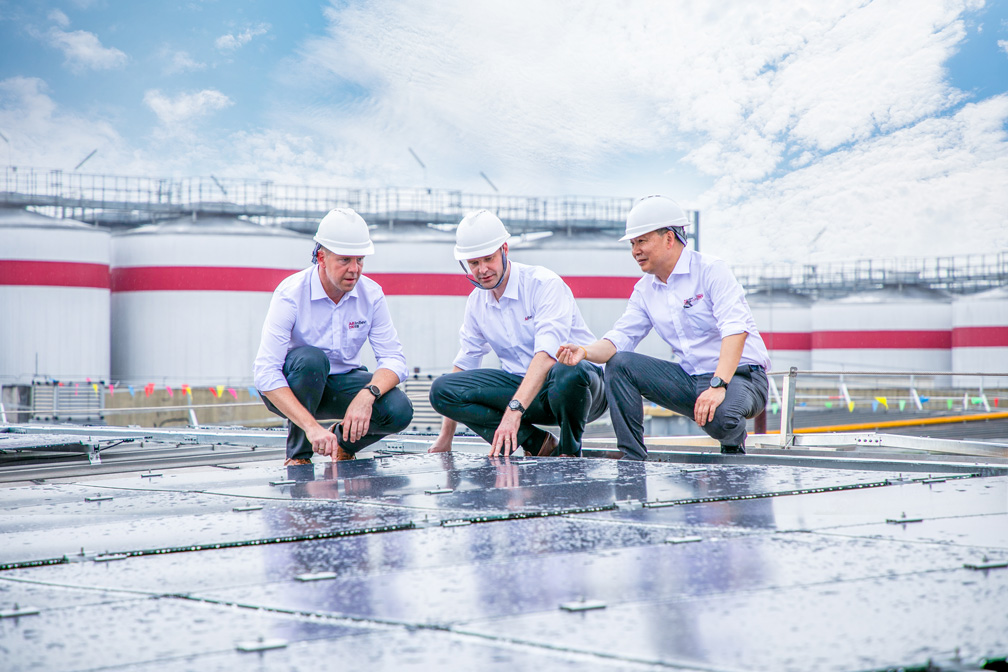
At the inauguration ceremony, influencers from the Rocky Mountain Institute, the World Resources Institute and the Southern Weekly joined Bud APAC executives for a one-of-a-kind cross-over mini-forum on green energy, co-exploring the past, the present and the future of renewable energy and environmental protection while inspring the attending crowd with the infinite imagination of a green future.
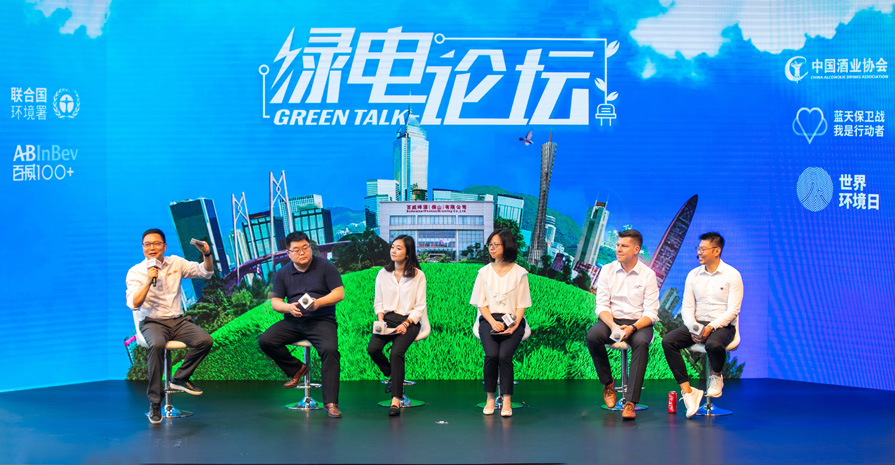
During the forum, Frank Wang, VP Legal & Corporate Affairs APAC of Budweiser, commented: “Bud APAC has a dream to bring people together for a better world. Sustainable development, being more than just our business priority, is also equally important to the communities where we operate and the consumers. Whilst undertaking more social responsibilities in the fast-growing China market, we also have a pioneering role to play to drive sustainable development and transformation for the whole beer industry.”
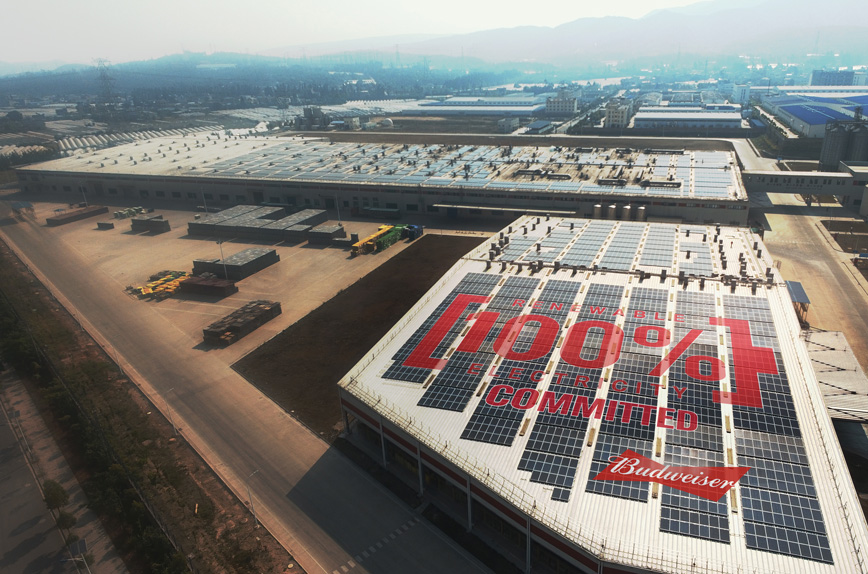
Zhu Sijie, New Energy Consultant of the Rocky Mountain Institute, added: “China has already passed and published a responsibility scheme for the consumption of renewable energy, putting forward clear requirements for green consumption on the demand side. It is believed that corporate procurement of renewable energy will play an increasingly important role in boosting the growth of such energy sources. We hope that more companies from different sectors can join in this meaningful pursuit, and together drive the development of renewable energy and the low-carbon transformation of China’s energy sector in a marketized manner.”
Endorsing Zhu’s opinion, Yuan Min, an energy program researcher from the World Resources Institute, shared her observation: “Being a Fortune 500 FMCG company, AB InBev embraces impactful measures for its sustainable development, which can help companies enhance their resource utilization in a more efficient way. Its successful experiences will have positive, exemplary effects on companies with similar aspirations so that they can apply such experiences to their own supply chain. This will bring great meanings for Chinese FMCG companies’ upgrade and transformation from being extensive to being intensive in terms of growth model, and help co-drive a green future and a war to save the blue sky for China.”
Bud APAC’s Foshan brewery, sitting on a strategic location within the Guangdong-Hong Kong-Macau Greater Bay Area, is the biggest Budweiser brewing and bottling facility in the world, delivering 20% of the world-famous beer brand’s global output. Assuming the form of photovoltaic power stations, the brewery’s renewable energy project has a total investment of RMB 24.5 million, and a total installed capacity of 4.9 megawatts. It is installed with more than 17,200 pieces of 285-watt solar panels that cover about 50,000 square meters, and is expected to embrace grid-connection at the end of June and generate about 5 million kilowatt hours of electricity on an annual basis starting 2019.
This renewable energy project marks a key step of breakthrough significance by Bud APAC in pursuing its 2025 Sustainability Goals in China, as the company is leveraging concrete actions to cut air pollution, save the blue sky, and drive Foshan’s industrial layout and structure transformation into green, low-carbon models, thus contributing to the Greater Bay Area’s innovative, green development.
But Bud APAC’s actions don’t stop with the Foshan brewery. It is expected that by the end of 2019, 9 of its Chinese breweries will be installed with photovoltaic panels that cover a combined floor area of 410,000 square meters, equal to the size of 57 standard football pitches. Altogether, they stand for a total installed capacity of 41 megawatts and an estimated annual power output of 41 million kilowatt hours – this huge supply is able to recharge 4 billion iPhones, light up 800 Canton Towers, or even launch 12 rockets to the moon. By then, around 30% of Budweiser’s annual volume in China will be brewed with renewable energy. This clean, pollution-free energy sources can help cut brewing-related CO2 emission by 32,000 tons, equal to the environmental impact of 1.78 million trees. That also means saving the combined annual exhaust of 12,000 cars, or 3.2 billion pairs of single-use chopsticks.
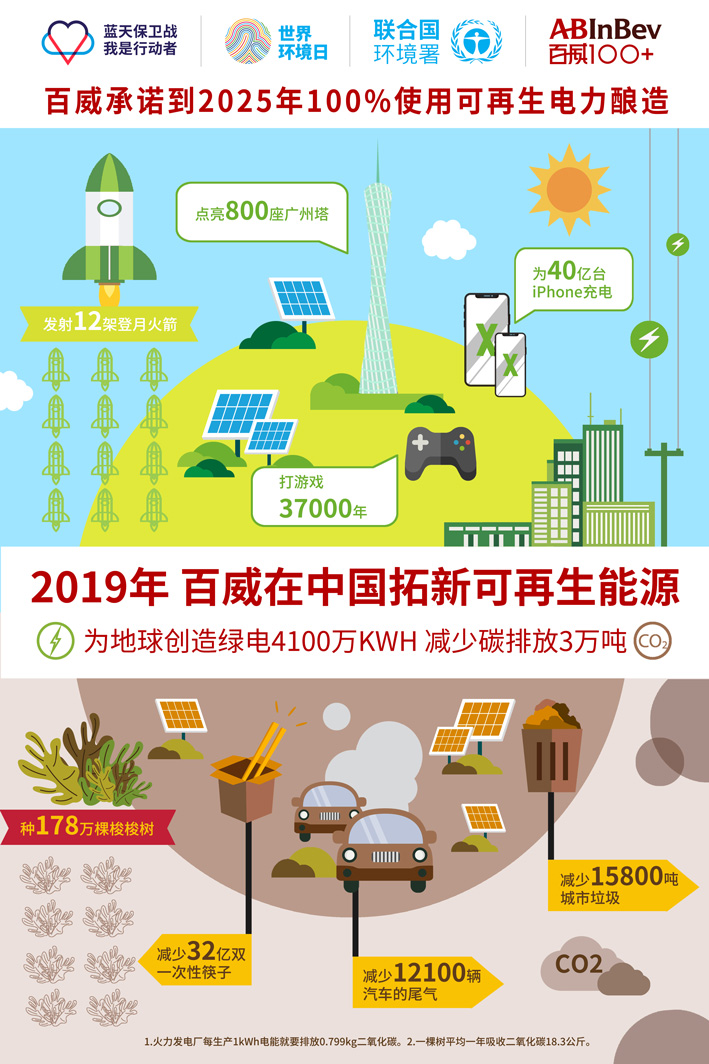
He Yong, Executive Vice Secretary-General & Beer Branch Secretary-General of the China Alcoholic Drinks Association, gave his thumb-up: “As the beer industry’s leading player, Bud APAC has a purpose of promoting renewable energy that’s shared by CADA. We hope that while pursing their value realization, companies can also make continuous efforts to give back to society, by cutting air pollution and helping save our blue sky. That is to say in addition to bringing great tastes to Chines consumers, we do look forward to a scene in which brewers try their best to ensure blue sky and clean air is saved for our future generations.”
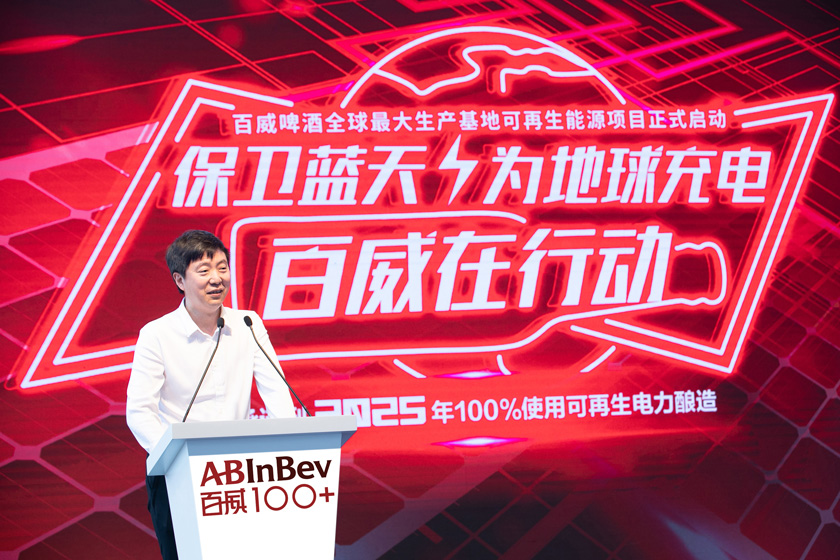
Do you know what one kilowatt hour of electricity can do? Have you ever seen a battery that’s as high as two stories? Do you have any idea what renewable energy is? Do you know that even with a small action, you can also help bring our Mother Earth a green future? If any of your answers is no, then come visit our Budweiser Charging Station!
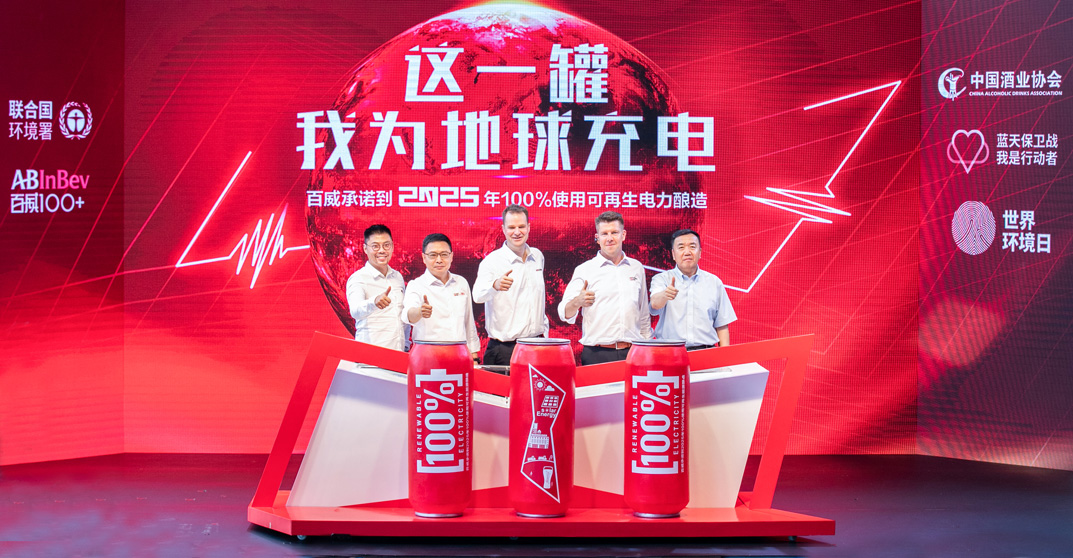
On June 4, a pop-up installation, in the novel form of a giant bottle-shaped battery fully covered with solar panels, landed on the bank of Guangzhou’s Pearl River. Fitted with a screen that shows the battery’s real-time power volume, the installation is created with 100 photovoltaic panels and an energy storage system that collects the renewable energy generated by the panels during the day and supplies clean energy to the recharging station in a non-stopping fashion, so that all sound and light devices inside the big bottle are powered by 100% renewable electricity.
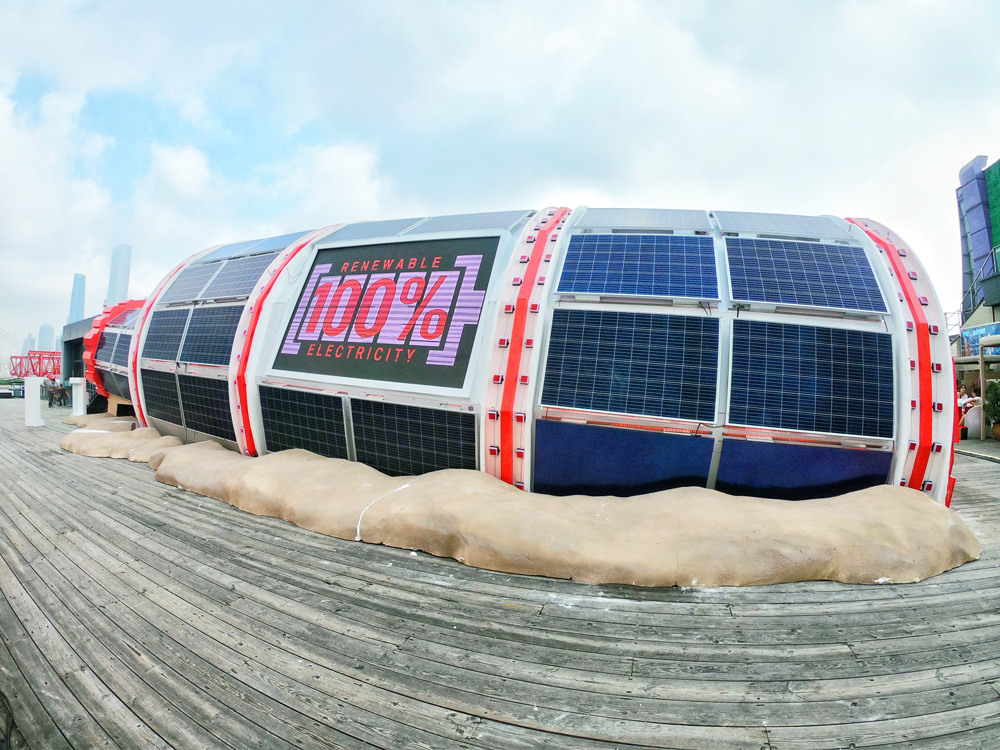
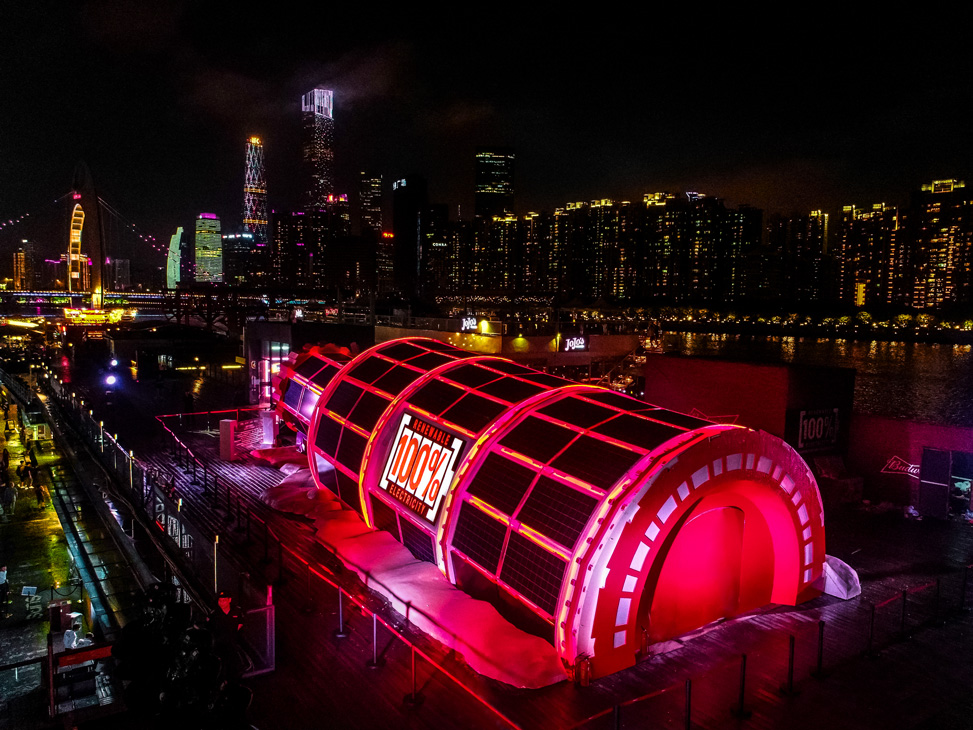
After its power volume gradually climbed from 0% to 100%, the Budweiser Recharging Station eventually opened to environment-conscious consumers in Guangzhou. Combining an eye-dazzling visual design, the beer bottle-shaped installation is filled with a number of interactive zones that provide consumers in Guangzhou a fully-charged environmental protection experience. The most fascinating exhibit has to be the pretty sizable breath-controlled cloud light built with 300 white bulbs, each of which can be turned on or off individually by consumers’ exhalation to present different cloud shapes. Another exhibit worth exploring is the “Not-For-Sale Store” that presents a limited-edition BUD WED can of exclusive design – the commemorative can is printed with an eye-catching symbol that reads “BUD pledges to be 100% brewed by renewable electricity by 2025”, reminding consumers that even with a handy decision to choose a can of renewable energy-brewed beer, they can contribute to our Mother Earth – so, even a cup of beer commands to power to recharge our planet!
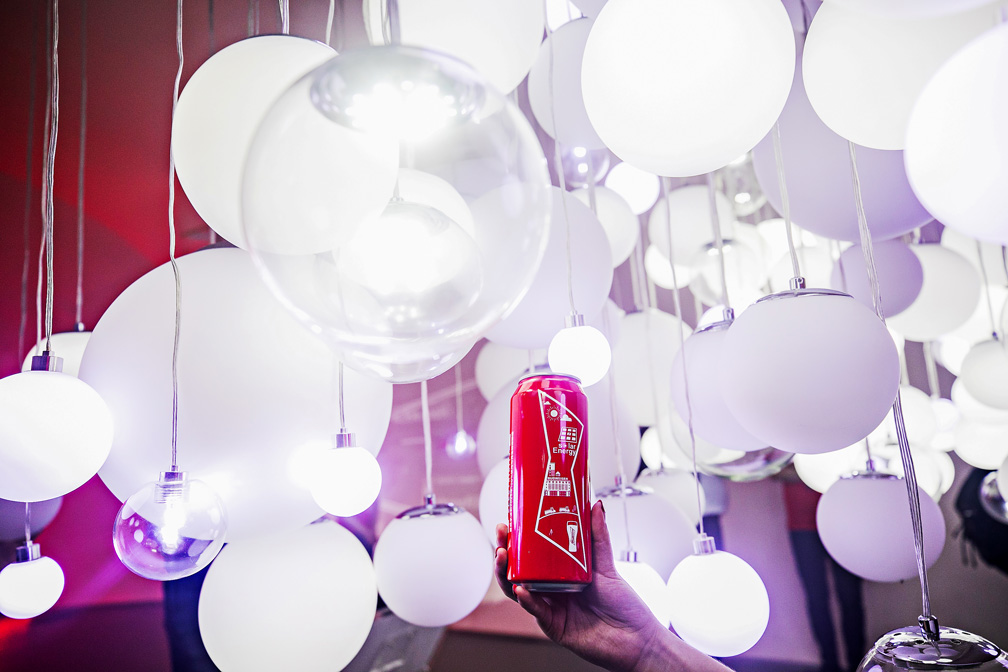
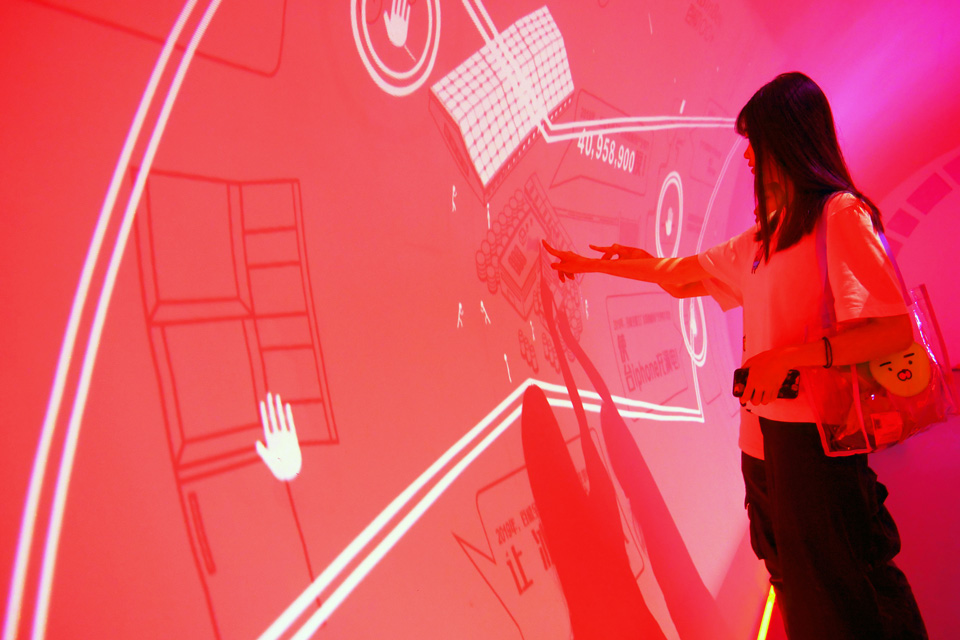
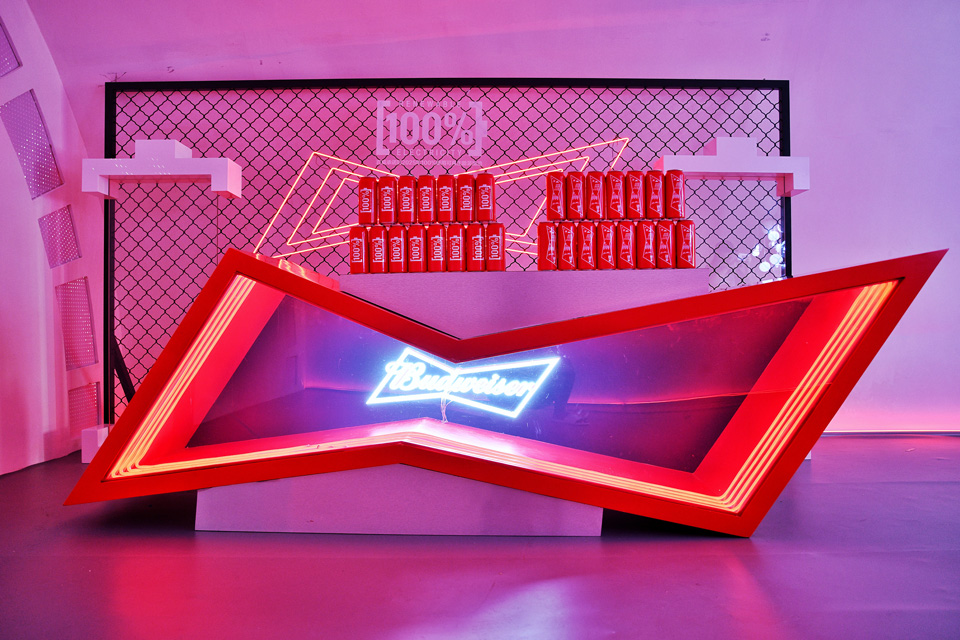
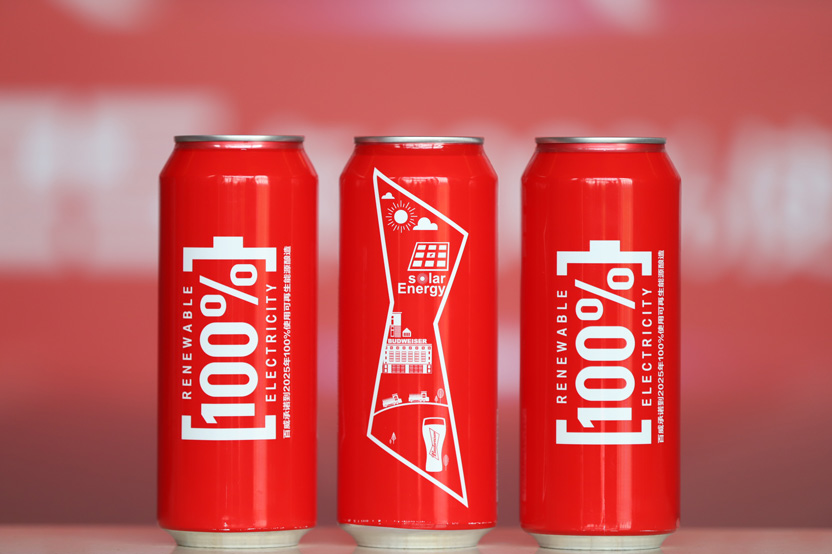
Through the Budweiser Recharging Station project and the limited-edition BUD WED can, Bud APAC hopes to transform rarely-encountered renewable energy concepts into day-to-day life scenes that consumers are familiar with, so that they can have a direct understanding about such green energy sources and be called on to start from small deeds to help recharge our Mother Earth in their own way!
It has always been Bud APAC’s dream to bring people together for a better world. The world-leading brewer will continue to apply mentalities of sustainable development and social responsibility throughout its complete value chain to further explore and expand renewable energies, and co-build a cleaner world with comprehensive efforts, in areas from ingredient procurement, to brewing, and then to vertical management, packaging and logistics as well as by raising consumer awareness.